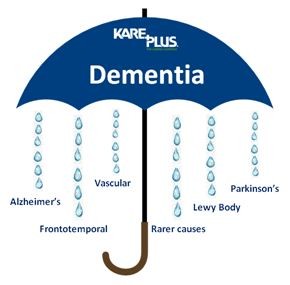Dementia: Four questions about Lewy Bodies Dementia
Friday, January 15th, 2016 | Raising Awareness
 Dementia is an umbrella term describing the loss of cognitive mental ability due to the gradual loss of brain cells. It does not cover a single illness, yet is made up of various diseases such as Parkinson’s, Alzheimer’s and, as we will examine in this article, Lewy Bodies.
Dementia is an umbrella term describing the loss of cognitive mental ability due to the gradual loss of brain cells. It does not cover a single illness, yet is made up of various diseases such as Parkinson’s, Alzheimer’s and, as we will examine in this article, Lewy Bodies.
Although perhaps not one of the most heard of forms of dementia, Lewy Bodies Dementia (LBD) is one of the most common – affecting an estimated 100,000+ people in the UK. As with many forms of dementia, Lewy Bodies Dementia shares many similarities with Parkinson’s and Alzheimer’s.
Lewy bodies is actually the name for abnormal protein deposits discovered in the brain by Frederic Lewy in the early 1900s, and such deposits are found in various forms of dementia. It wasn’t until 1976 that Lewy Bodies Dementia was described as a standalone disease by Japanese psychiatrist Kenji Kosaka and was only officially diagnosed in a patient in the 1990s - following post-mortems on specifically selected dementia sufferers.
1) What are the causes? A build up of Lewy body proteins around areas of the brain responsible for memory and muscle movement is the main cause of LBD. It is not yet clear what instigates the development of such proteins, or how exactly they damage the brain, but it is believed they interfere with chemical signals from one cell to another.
In very rare cases, there have been reports of inherited LBD, although it does usually occur in people without any family history of dementia.
2) What are the symptoms of Lewy Bodies Dementia? As with many forms of dementia, LBD develops slowly and gradually worsens over a number of years. Common symptoms associated with many types of dementia, such as memory loss, slow reactions and tremors, are all common in LBD sufferers too.
However, symptoms that can distinguish it away from other forms of dementia include:
- Unexpected and regular mood swings – from alertness, to confusion, to drowsiness.
- Hallucinations – both pleasant and distressing
- Fainting
- Loss of facial expressions
- Difficulty swallowing
It is not uncommon for Lewy Body Dementia sufferers to be diagnosed with further health problems as a result of the LBD symptoms; such as chest infections and injuries from falls.
3) How is LBD treated? Due to little being known about the causes of Lewy Bodies Dementia, there is not yet a known cure. There is however various treatments that can help manage the symptoms.
The biggest factor in helping treat the disease is the implementation of a sufficient care plan to ensure all the sufferer’s needs are met. This may be arranging care workers, making adjustments around the home or even sourcing financial assistance.
Various medications are available to help reduce symptoms such as hallucinations, movement problems and depression, but no medications is available to reverse or slow down the onset of the disease.
4) What can you do to help a Lewy Bodies Dementia sufferer? Very little is known about LBD and it is argued more education is needed for consultants and doctors who come in contact with the disease. As a carer, educating friends, relatives and, if necessary, even healthcare professionals can make the sufferers life much easier. For example, LBD sufferers can suffer particularly bad side effects to antipsychotic medication, so informing doctors and nurses of this as soon as possible could make a huge difference.
As with all forms of dementia though, if you become a carer for a loved one you will notice a lot of differences and have to adapt to many changing challenges. One of the best ways to stay on top of this is to keep looking after yourself. If you’re not fit and healthy, both mentally and physically, you will struggle to adapt to their changing needs.
If things do become too overwhelming, temporary respite care is available to give you a break.
To find out more about other forms of dementia, you can read our breakdowns of each strain, here. You can also find out about become a carer or receiving care for a sufferer, here.
Sources:
https://en.wikipedia.org/wiki/Dementia_with_Lewy_bodies#History
http://www.nhs.uk/Conditions/dementia-with-lewy-bodies/Pages/Introduction.aspx
https://www.lbda.org/














